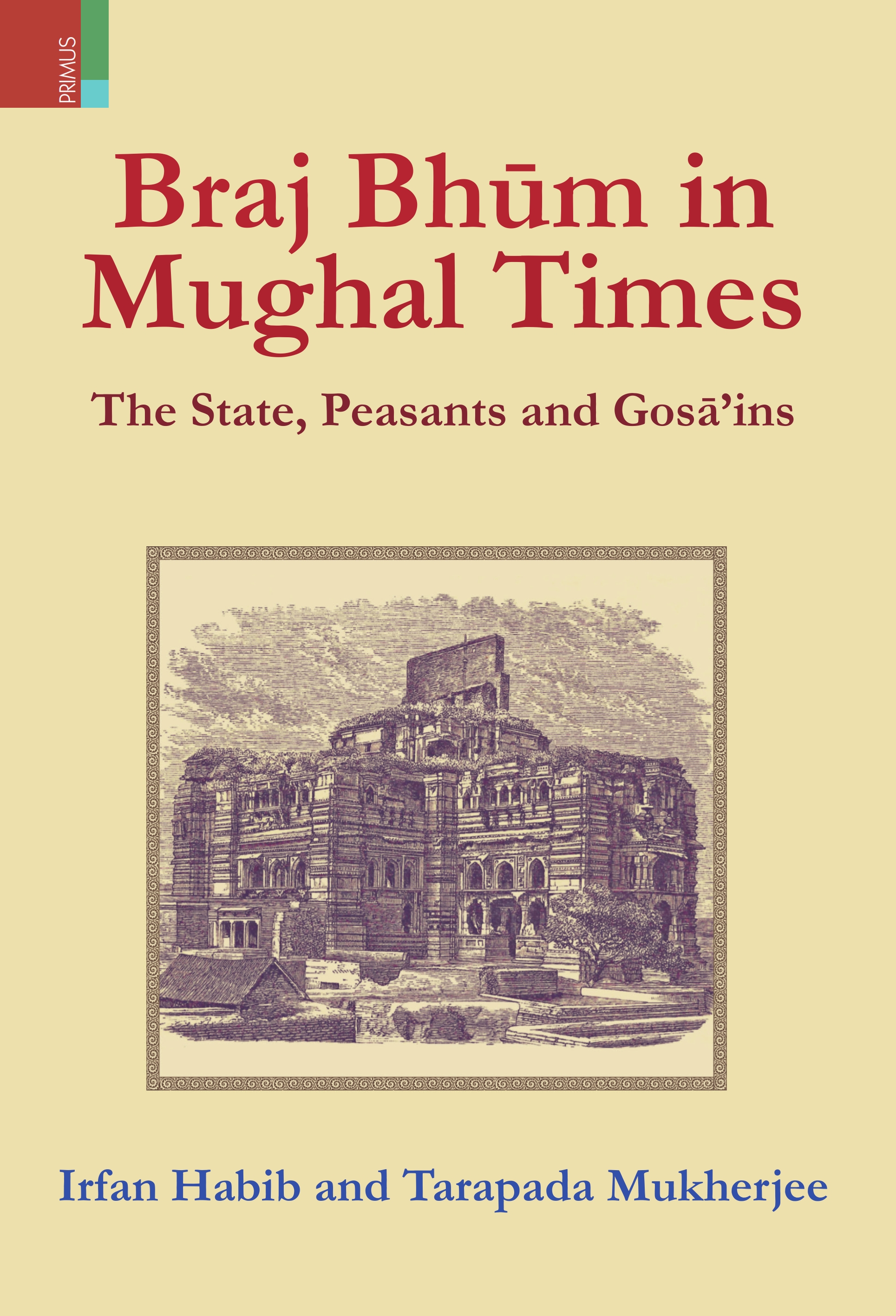
Braj Bhum in Mughal Times: The State, Peasants and Gosains
AUTHORS: Irfan Habib and Tarapada Mukherjee
| HB ₹1095 . $54.95 . ₤46.95 |
||
INFORMATION
- AUTHORS: Irfan Habib and Tarapada Mukherjee
- HB ISBN: 978-93-89850-22-2
- Year: 2020
- Extent: 298
- Discount available on checkout
- Usually dispatched within 3 to 5 working days.
Braj Bhūm in Mughal Times: The State, Peasants and Gosā’ins represents a unique effort at presenting the conditions of life of the ordinary people in a small region of the Mughal Empire from about the accession of Akbar (1556) to the collapse of Mughal power (1739). The study brings out how the Mughal administration functioned on the ground, how peasant communities were organized and religious men conducted their worldly affairs. We are even able to meet some lowly men and women as distinct individuals.
Some interesting facts also emerge: the early dates from which Akbar’s grants to temples began; the extensive survey of temples in Braj heartland that Akbar ordered in 1598; and, late in Aurangzeb’s reign (1704), the official levy of Re. 1 per annum on each village in the Braj region to be collected by the Chaitanya—gosā’ins. Readers to whom ordinary people matter should find much of interest in the reconstructed history of three villages separately studied (Vrindavan, Radhakund and Rajpur). At the end, there are biographies of Gosains of the Chaitanya sect mainly containing details of their worldly concerns.
The book uses a mass of privately preserved documents in Persian and Braj, along with historical texts, travel accounts, etc. (see Introduction). A bibliography and comprehensive index will be found at the end of the book.
Irfan Habib (b. 1931). Educated till M.A. at Aligarh, with D.Phil. from Oxford 1958, he taught from 1953 to 1994 at Aligarh where he is now Professor Emeritus. His works include Agrarian System of Mughal India, (1656-1707) 1963, revised eds., 1999 & 2014; An Atlas of the Mughal Empire (1983); Essays in Indian History, Towards a Marxist Perception (1995); Medieval India: the Study of a Civilization (2008); Economic History of Medieval India, 1200-1500 (2011); and Atlas of Ancient Indian History (with Faiz Habib) (2012). He has published twelve monographs in the People’s History of India series, two of these jointly authored. He has co-edited Cambridge Economic History of India, Vol. I (1982); UNESCO’s History of Humanity, Vol. IV (1999) and Vol. V (2000); and UNESCO’s History of Central Asia, Vol. V (2003).
Tarapada Mukherjee (1928–90). Educated, Calcutta and Vishva Bharati, he obtained his doctoral degree (1959) from the School of Oriental and African Studies (SOAS), London, with a thesis on Brajbuli poetry. Having already published an anthology of Bengali poetry (1954), he undertook (with T.W. Clerk) a translation of the novel Pathar Panchli (1969). In 1971, came his study of Krishna Kirtan, and later, with the collaboration of Sukumar Sen, a critical edition of Krishnadas Kaviraj’s Chaitanyacharitamrita (1988). In the meantime he organized the project of tracking down and photographing all old documents in possession of temples and individuals in the Braj region. Based on this material, he published four articles (one jointly with J.C. Wright and the rest with Irfan Habib).




